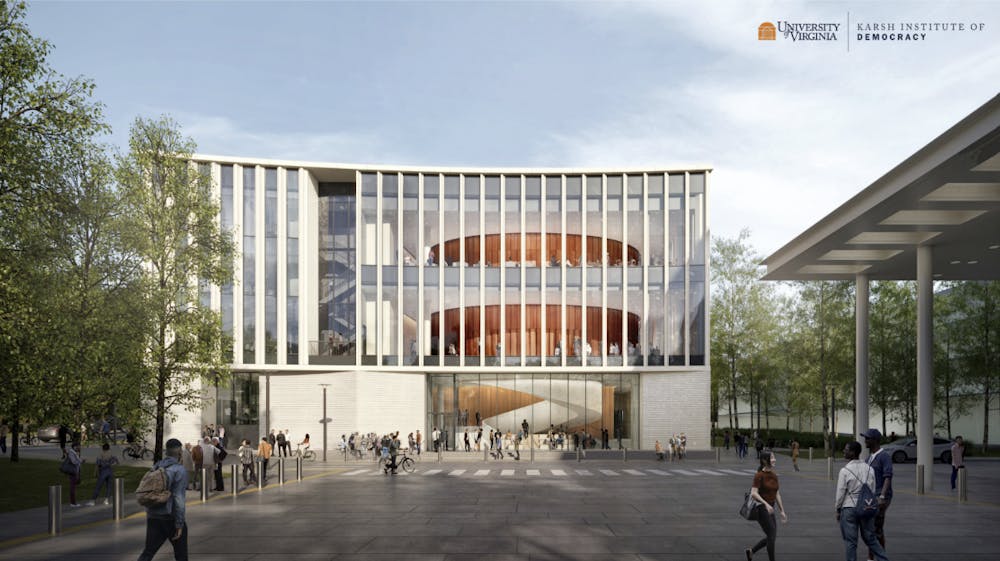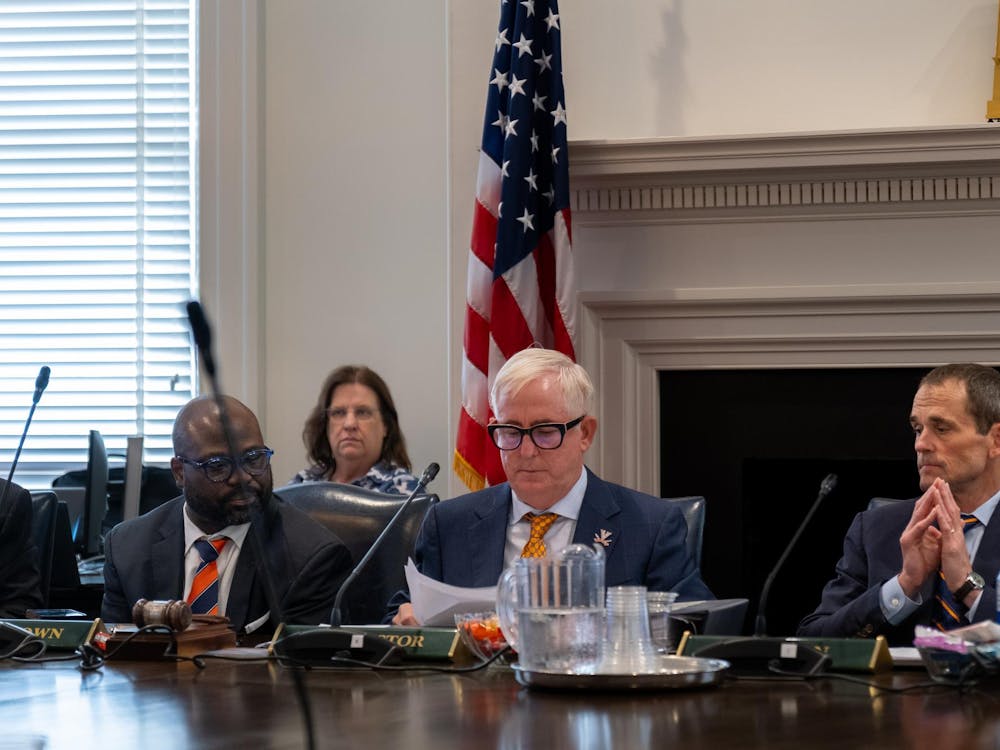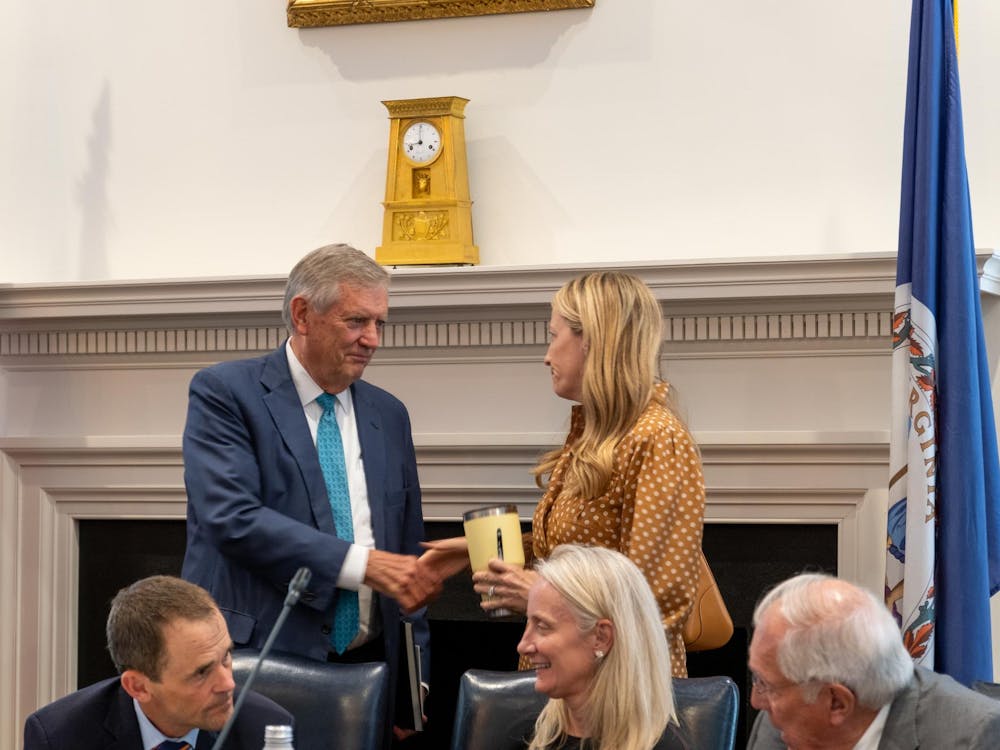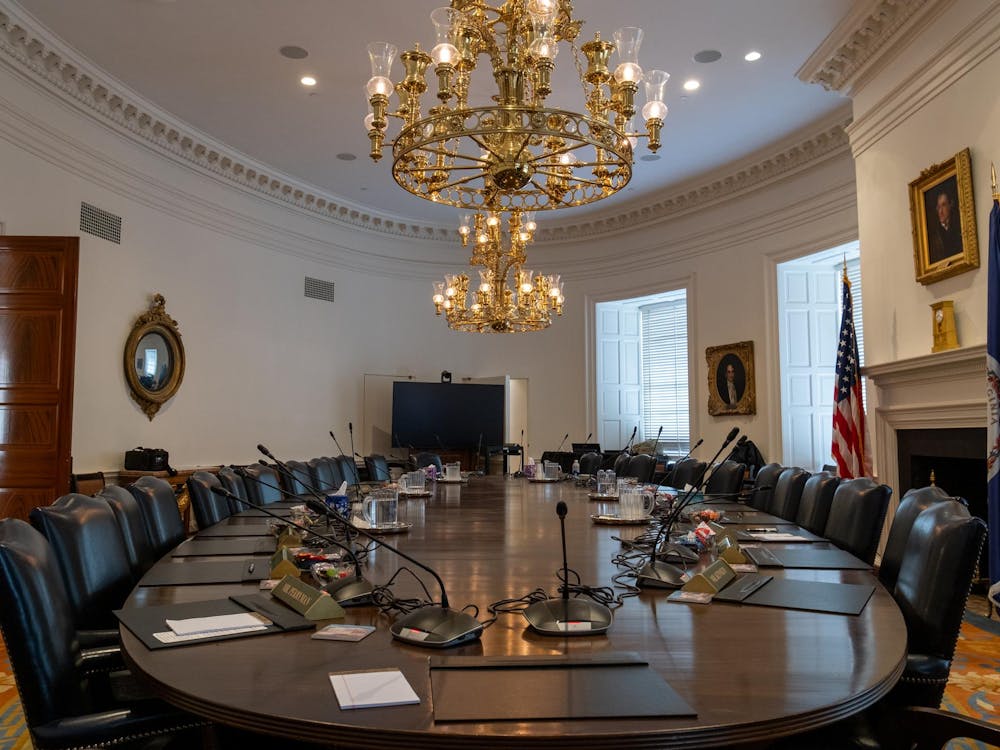After over a year of planning and deliberation, construction is now underway on a new center for the University’s Karsh Institute of Democracy, which will be located on the Ivy Corridor and will also provide programming space for the Frank Batten School of Leadership and Public Policy. The center, which has a total project budget of $82 million, will serve as a hub for work promoting democratic ideals and values and will host events, conferences and film screenings, according to University spokesperson Bethanie Glover.
Currently based out of Bond House, the Karsh Institute is a University organization founded in 2021 with the stated purpose of confronting challenges to democracy through interdisciplinary scholarship and programming.
According to Melody Barnes, executive director of the Karsh Institute of Democracy, the upcoming space will help better achieve the institute’s goals of strengthening responsible governance and civic engagement. She said that the upcoming space will help the organization achieve these aims by providing new spaces for interdisciplinary research, meetings and large-scale events.
“The Karsh Institute of Democracy’s new building will support the collaborative, research and programmatic components of the Institute’s work,” Barnes said.
Glover said that while the current Bond House location includes an event space, it is not sufficient for the Karsh Institute’s larger scale events, which they often host at other locations around Grounds instead. Glover added that the Karsh Institute’s Bond House location also does not offer enough meeting or collaboration space.
“As a pan-University institute, there is a need for space to convene and collaborate,” Glover said. “We look forward to the new building meeting these needs.”
Examples of programs and events that the Karsh Institute has hosted this semester include the Student Dialogue Fellowship — a program in which students from across the University convene monthly to discuss the upcoming 2024 U.S. elections — as well as talks with federal government officials and faculty members, according to Barnes.
Much of the financial backing for the Karsh Institute’s work and expansion comes from Martha and Bruce Karsh, two School of Law alumni who donated $50 million in 2021 to establish the Karsh Institute and help fund the new center’s construction. According to Barnes, future donors will have the opportunity to donate to support the project in exchange for the ability to name spaces within the building.
The building itself is designed by Höweler + Yoon Architecture, a Boston-based firm that also designed the University’s Memorial to Enslaved Laborers, located near Brooks Hall. The Board of Visitors — who act as the University’s corporate board and oversee its long-term planning — approved the Karsh Institute of Democracy construction project June 2021 and the architecture firm’s design June 2023.
The Karsh Institute’s new center will be located on the Ivy Corridor, a University-owned 14.5 acre property of land that is the site of multiple construction projects, including the recently completed School of Data Science. The 69,320 square foot, four-story building will feature an auditorium with an estimated 425-person capacity that will be capable of livestreaming in-person events for online viewers to tune in virtually. While the building will feature a number of other spaces — including conference rooms, a classroom and research spaces — Glover described the auditorium as the central feature of the building.
“[The center] will host events and conferences that will be broadcast to the world, and it will be a workshop for the ideas and media that advance democracy in a public way through films, podcasts, print documents, art installations and exhibits,” Glover said. “The auditorium — the heart of the building — is a space where local, national and global audiences will deepen their understanding of democracy’s aspirations and realities.”
In addition to hosting Karsh Institute programming, Glover said the University’s Frank Batten School of Leadership and Public Policy will make use of the center’s research, meeting and event spaces. According to Glover, Batten will continue to operate centrally from Garrett Hall, which includes offices, study spaces and the Great Hall, a larger gathering space. Batten students currently take classes at academic buildings across Grounds, and Glover noted that since the Karsh Institute building will only contain one classroom, this will continue to be the case even after the new center is complete.
However, Glover said housing both the Karsh Institute and Batten on the same premises would also allow for interdisciplinary collaboration connecting public policy and leadership with pro-democracy efforts.
“The Karsh Institute building will serve also as a second home for the Batten School,” Glover said. “[It will enable] Batten to both expand [its] impact with integrated teaching and research areas and broaden [its] engagement through hosting more events and convenings.”
While the University has multiple developments planned for the Ivy Corridor beyond the Karsh Institute center, only one of the three projects under development on the University-owned parcel of land is complete. The School of Data Science celebrated the grand opening of its building April, but the Virginia Guesthouse — an under-construction hotel and conference center — and the Karsh Institute are not expected to open until 2025 and 2026 respectively.
In terms of the University’s motivation for supporting this large-scale project, Glover said that as one of the nation’s leading public universities with a historical connection to American democracy, the University’s programming and values align with those of the Karsh Institute.
“Democracy is a key area of focus at U.Va., and many schools and centers throughout U.Va. are doing work in the democracy space,” Glover said. “The Karsh Institute of Democracy serves to unite and amplify the work being done and augment that work with its own.”







